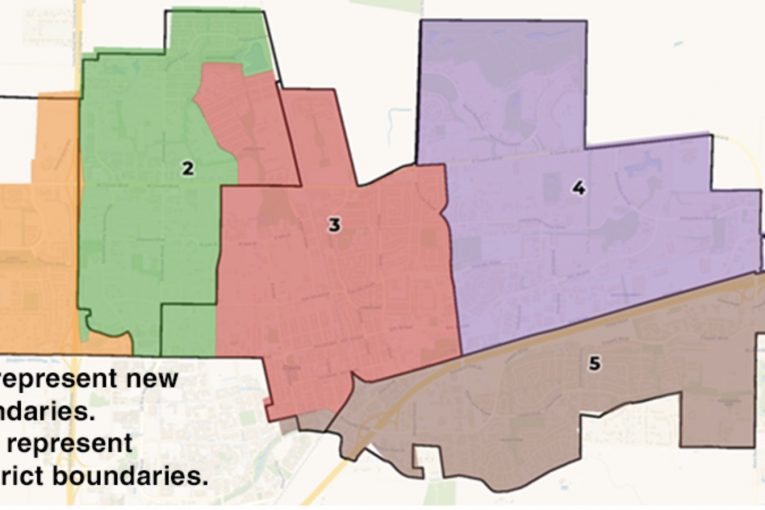

By David M. Greenwald
Executive Editor
On Thursday, in a much-anticipated court decision that could have broad reaching implications for places like Davis, the court rejected arguments from both sides.
On the one hand, it rejected plaintiff arguments that racially polarized voting in an at-large system was enough to show a violation of the California Voting Rights Act.
On the other hand, it also rejected arguments from Santa Monica and by extension the Court of Appeal, that required proof it would be possible to draw a minority-majority or near majority district.
The court writes that “the Court of Appeal misconstrued the CVRA. ‘To prevail on a CVRA claim,’ a plaintiff who has established the existence of racially polarized voting in an at-large system need not prove that the protected class would constitute a majority — or, as the City proposes, a near majority — of a hypothetical single-member district.”
Instead, the court ruled that “to establish dilution of a protected class’s ability to elect its preferred candidate under the CVRA, a plaintiff must demonstrate ‘the potential to elect representatives’ under some lawful alternative electoral method.”
The court continues, “One way to demonstrate the class’s potential to elect its  preferred candidates would be to show, as the VRA requires, that the class could be ‘sufficiently large and geographically compact to constitute a majority in a single-member district.’”
preferred candidates would be to show, as the VRA requires, that the class could be ‘sufficiently large and geographically compact to constitute a majority in a single-member district.’”
The court later added, “To establish the dilution element, a plaintiff in a CVRA action must identify ‘a reasonable alternative voting practice” to the existing at-large electoral system that will “serve as the benchmark ‘undiluted’ voting practice.’”
It continued, “The key inquiry in establishing dilution of a protected class’s ability to elect its preferred candidate under the CVRA, therefore, is what percentage of the vote would be required to win — an inquiry that is not short-circuited merely because the protected class may fall short of an absolute majority.”
Courts should likewise keep in mind that the inquiry at the liability stage “is simply ‘to prove that a solution is possible, and not necessarily to present the final solution to the problem.’”
The court noted, “We agree with the Court of Appeal that a plaintiff cannot prove dilution of its ability to elect its preferred candidate under the CVRA by showing that its voting share would increase 15-fold, from 0.1 percent to 1.5 percent, in a hypothetical district.”
In that circumstance, as the Court of Appeal explained, “[t]here are simply too few voters . . . to be numerically effective in an environment of race-based voting.”
But the court added, “But it does not follow that a majority (or near-majority) requirement should be judicially engrafted onto the CVRA.”
On the other hand, “The dilution element also ensures the protected class is not made worse off. To replace at-large with district elections under a dilution theory, a successful plaintiff must show not merely that the protected class would have a real electoral opportunity in one or more hypothetical districts, but also that the incremental gain in the class’s ability to elect its candidate of choice in such districts would not be offset by a loss of the class’s potential to elect its candidates of choice elsewhere in the locality.”
Meanwhile the court has remanded “the matter to the Court of Appeal to decide in the first instance whether, under the correct legal standard, plaintiffs have established that at-large elections dilute their ability to elect their preferred candidate; whether plaintiffs have demonstrated the existence of racially polarized voting; and any of the other unresolved issues in the City’s appeal.”
As UC Davis Law Professor Chris Elmendorf points out in a tweet, “Despite all the talk in the opinion about remedies, including ‘alternative’ remedies like at-large elections w/proportional voting rules, a city that wants to avoid CVRA liability just has (to) adopt district elect(ions).”
He added, “It doesn’t matter whether the districted elections make minority voters better off or worse off, b/c you can’t challenge SMD elections under the CVRA.”
Elmendorf also added, “Here’s hoping the release of this long-awaited opinion motivates the Legislature to revisit the CVRA’s immunity for districted elections. ”







While everyone agrees the implications for this are unclear and that the decision itself is clear as mud, I think this ruling pretty much eliminates any possibility that Davis would reconsider district elections.
As UC Davis Law Professor Chris Elmendorf points out in a tweet, “Despite all the talk in the opinion about remedies, including ‘alternative’ remedies like at-large elections w/proportional voting rules, a city that wants to avoid CVRA liability just has (to) adopt district elect(ions).”
He added, “It doesn’t matter whether the districted elections make minority voters better off or worse off, b/c you can’t challenge SMD elections under the CVRA.”
Elmendorf also added, “Here’s hoping the release of this long-awaited opinion motivates the Legislature to revisit the CVRA’s immunity for districted elections. ”
In short – the legislature is going to need to tighten the law, because as of now, the safe position for a city to take is district elections, because they are basically immune from litigation.
No, I disagree. The first burden is on the plaintiffs to demonstrate that “To establish the dilution element, a plaintiff in a CVRA action must identify ‘a reasonable alternative voting practice” to the existing at-large electoral system that will “serve as the benchmark ‘undiluted’ voting practice.’” That’s a pretty high hurdle. Just filing a suit with a default outcome of district elections will not be sufficient to scare a city into compliance. The plaintiff needs to do actual analysis and preparation, which people like Rexroad aren’t really prepared for. This removes the empty threats. As for Davis (and Santa Monica) its unlikely that the plaintiffs can muster this kind of feasible presentation.
I disagree with David for all the reasons that Richard Has described … and would add two additional reasons:
(1) The dilution standard in a highly disperse jurisdiction like Davis is produces numbers that clearly, numerically show that the District Election model actually dilutes the likelihood of a minority candidate being elected versus the At-Large model. Looking at the historical Davis elections, in order for a candidate to win a seat, that candidate needs to get more votes than his/her highest vote opponent. In only two candidate elections that threshold is 50% plus one vote. In more than two candidate elections it is a number of votes higher than the highest opponent. In at-large elections the threshold isn’t more than the highest opponent, it is more than the second highest or (sometimes) third highest opponent. Bottom-line, the barrier to success is higher in District elections than in At-Large elections.
(2) The dilution standard in all elections where a minority-majority district can not be created is a zero-sum situation. Any improvement of chances in one District mathematically has to be offset by a diminution of chances in one or more of the other Districts. Thus some members of the minority are advantaged only at the expense of other members of the minority.
I will be contacting the ACLU to pursue addressing this clearly discriminatory aspect of the CVRA
I think the chances of Davis going back are between slim and none and slim left the room. Had the Supreme Court affirmed the Appellate Court ruling then it would have been easy. Now I think it’s going to be very difficult, particularly with two people of color sitting on the city council right now.
I think the chances of them proactively going back are indeed between slim and none. That is why I’m going to contact the ACLU and see if they agree with me that the documented factual problems with the CVRA do indeed harm minority voters and their representation. I will be contacting the League of Cities, the California State Association of Counties, and the legal team representing Santa Monica.
Davis has shown through their past actions that the chances of them reactively making a decision are considerably greater than slim.
The ACLU is highly unlikely to entertain a lawsuit that would weaken CVRA, particularly given their role in creating the law in the first place.
To me, this reads like a great case for ranked-choice voting in an at-large election. Wouldn’t that meet all the criteria?
Right. Ranked-choice voting in an at-large context (aka the single transferable vote) is an alternative with a much greater potential for minorities to gain representation. One reason is that, unlike with districts, it doesn’t matter if the group is geographically dispersed or not. Another is that the threshold to win is less than 50%. In a 3-winner election, the threshold to win would only be 25%. The support for STV in Davis goes back to the early 2000’s and was even on the ballot as an advisory measure in 2006 (it passed 55% to 45%).
I think Ranked choice voting is probably the best solution for the city to consider within current law.
I’m not a lawyer and I think it would be beneficial to have one review what this decision means. It would be interesting to hear what Matt Rexroad thinks since he has some expertise in this area of law.
Still like the other non-lawyer commenters here I think McCann is closer but I don’t know my expertise in law is limited.
What I do know is that most of our school board has been elected in non-competitive elections. I don’t think that is a healthy political system. I think we need to look at how we can make school board elections more competitive.
As they say a defendant that represents himself has a fool for a client.
The Supremes mostly affirmed, with one exception, that it’s district elections or bust with several cities spending millions of dollars trying to fight to retain at-large elections, so far to no avail.
Davis doesn’t have the money to waste on litigation that is likely to lose. Get used to district elections.